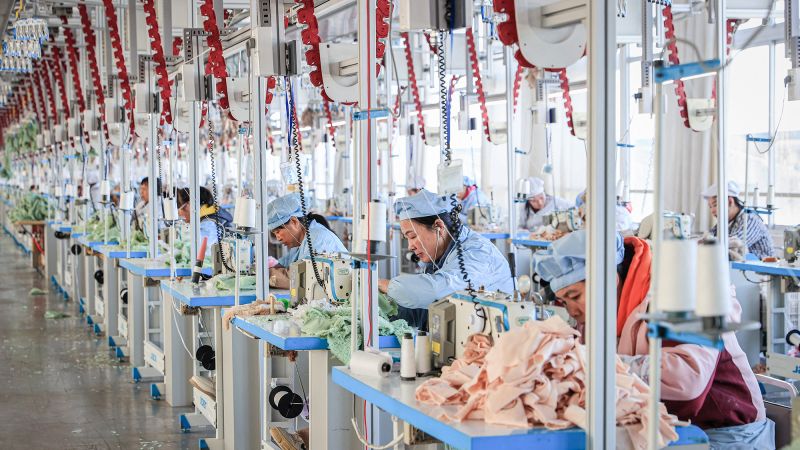
China’s weak consumption drags on economy as Trump tariff threat looms
CNN
China’s industrial output growth quickened slightly in November, while retail sales disappointed, keeping alive calls for Beijing to ramp up consumer-focused stimulus as policymakers brace for more US trade tariffs under a second Trump administration.
China’s industrial output growth quickened slightly in November, while retail sales disappointed, keeping alive calls for Beijing to ramp up consumer-focused stimulus as policymakers brace for more US trade tariffs under a second Trump administration. The mixed data underline how challenging it will be for China’s leaders to mount a durable economic recovery heading into 2025, when trade relations with China’s biggest export market could worsen while domestic consumption also stays weak. US President-elect Donald Trump’s vow to impose tariffs exceeding 60% on Chinese goods could push Beijing to accelerate plans to rebalance its $19 trillion economy, analysts said. This comes after over two decades of deliberation on transitioning from the current growth model focused on fixed-asset investment and exports to a consumption-driven one. China’s industrial output in November grew 5.4% from a year earlier, faster than the 5.3% pace seen in October, data from the National Bureau of Statistics (NBS) showed on Monday, beating expectations for a 5.3% increase in a Reuters poll. However, retail sales, a gauge of consumption, grew at its weakest pace in three months at 3.0% last month, much slower than a 4.8% rise seen in October. Analysts had predicted a 4.6% expansion. “China’s economic policies have been amazingly consistent in promoting manufacturers over consumers despite clear signs of lasting weakness,” said Dan Wang, a Shanghai-based independent economist. “So, one can expect production capacity to strengthen, potentially agitating the overcapacity issue and motivating Chinese companies to seek overseas markets.”













